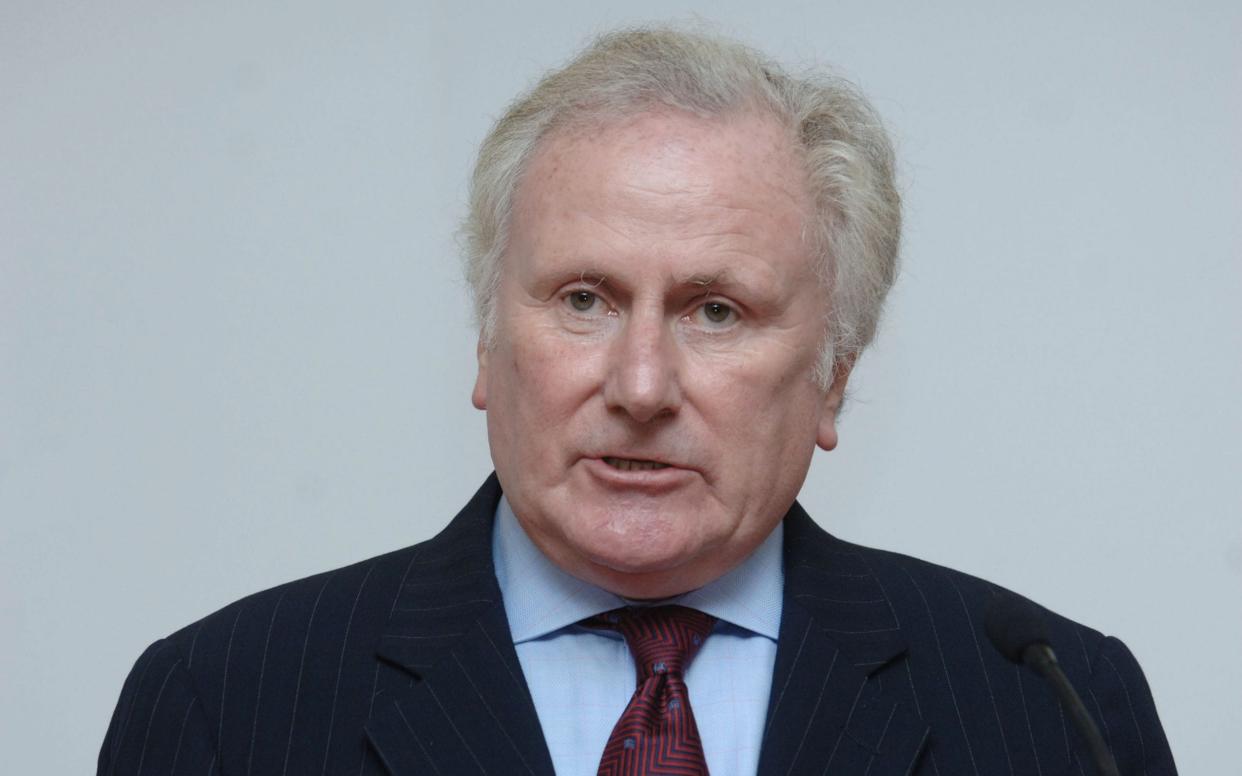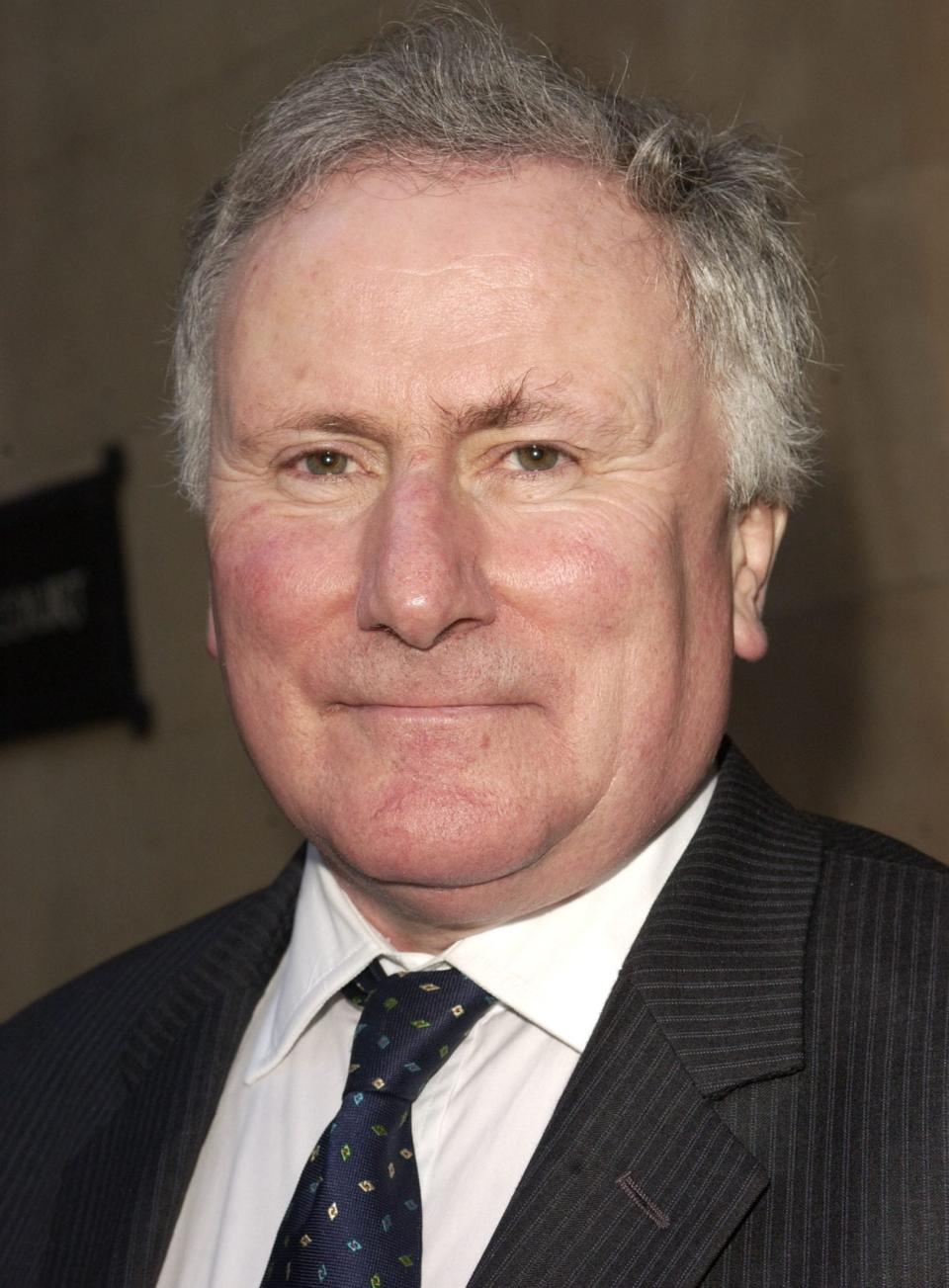Lord Kerr of Tonaghmore, Supreme Court Justice on the liberal wing during the Brexit era – obituary

- Oops!Something went wrong.Please try again later.
Lord Kerr of Tonaghmore, who has died aged 72, had been until his retirement eight weeks ago a Justice of the Supreme Court of the United Kingdom since its creation in 2009, and so participated in many of its recent decisions of great public interest, notably those bearing on Brexit; he was the last of the court’s inaugural 12 justices to leave office, and the last serving judge to have sat previously as a Law Lord.
Warm-hearted and delightful company in person, as a judge in the Supreme Court (SC) Brian Kerr was his own man to the point of surprise, frequently writing dissenting judgments.
Every judge must find in their approach a balance of coherence and discretion, between upholding established legal principles and developing the law to ensure justice. As Lord Chief Justice of Northern Ireland from 2004, Kerr did not have a reputation as a radical, but once sitting in London he seemed to be particularly determined to correct injustice.
He was sometimes described as the conscience of the court – “a not unimportant role in a final court of appeal,” as one colleague put it. Kerr’s judgments were concentrated in two areas, criminal law and public law, particularly cases involving human rights.
He was often of a mind with Lady Hale of Richmond, forming what was seen as the liberal wing of the court. To some observers it appeared that he operated almost on the presumption that the state, if not actively immoral in its actions, was in the wrong in any dispute with a citizen.
When he told James Eadie QC, who represented the Government in the various Brexit hearings, that he had not yet been persuaded of a point, Eadie replied: “I fear, my Lord, that I have never persuaded you of anything.” Certainly, Kerr enjoyed teasing counsel somewhat.
In 2016, after a panel of three judges in the High Court ruled – to vehement objections from many Brexit supporters – that the Government could not trigger Article 50 without in effect gaining the agreement of Parliament, he was among the eight out of 11 justices of the SC who dismissed the Government’s appeal.
Then, in 2019, in the second of the cases brought by the businesswoman Gina Miller, Kerr, with the other 10 justices, held that the Prime Minister’s advice to the Queen that Parliament should be prorogued, to prevent further delays to Brexit, was unlawful.

Kerr’s experience of Northern Ireland during its dark years naturally drew him to cases involving its people. In 2018, in a judgment that meant much to him, he sided with a majority of the SC in holding that the law there which prohibited abortion in cases of rape, incest and fatal foetal abnormality was incompatible with human rights law. (He believed, however, that British courts should not slavishly follow rulings made by the European Court of Human Rights.)
Last year, he delivered the judgment of the court that the Government had so far failed to set up an effective inquiry into the killing in Belfast in 1989 of the solicitor Pat Finucane. And in May this year, he gave the lead judgment quashing the internment in 1973 of Gerry Adams, a ruling that was controversial as it threw doubt on long-standing principles governing the delegation of ministerial authority.
But Kerr also left a rich legacy of binding judgments that will affect the lives of countless ordinary people. In Montgomery v Lanarkshire Health Board (2015), he and Lord Reed gave a judgment establishing decisively that doctors had to explain to patients their treatment options, so that they could take an informed decision.
This arose from a baby being born with multiple disabilities when an obstetrician failed to inform the mother of the availability of a caesarean section, although she was known to be at risk of complications during labour.
In Stocker v Stocker (2019), a marital altercation while a pair of trousers was being pinned led to a ruling establishing that allowance be made for the hasty and informal nature of social media postings when considering if they were defamatory. And in ZH (Tanzania) (2011), he made his view clear that in disputes about a child’s future, its best interests were not one of the factors to be considered, but paramount. For Kerr, the dispensation of justice was not simply an intellectual exercise.
Brian Francis Kerr was born on February 22 1948 into a Roman Catholic family settled at Lurgan, Co Armagh. His father had trained as a solicitor but did not enter practice, and his mother, a teacher, was eventually left a widow with seven children to raise.
At school, St Colman’s College in Newry, Brian was drawn to the humanities and hoped to go to Oxford. His teachers, he recalled, thought this “a slightly ridiculous aspiration” and he was not entered for the exam.
Later in life, he would be introduced as the only Supreme Court Justice not to have attended Oxbridge. He would gently correct this by saying he was the only one to have had the good fortune to have gone to Queen’s University, Belfast, where he read Law before being called to the Bar in 1970.
Kerr did not have family contacts to help him prosper in the profession, but he was well liked by solicitors of his own age, and this got him a wide range of work which let him show his abilities.
Although he came to regard the imposition of internment as a failure of the rule of law, he enjoyed having to grapple with the many legal developments necessitated by the Troubles. He acted as Counsel to the Crown from 1978 until 1993 and took silk in 1983.
Satisfied as he was by the variety of his work, Kerr had no ambitions to sit on the bench, and when asked to join the High Court in 1993 he accepted only from a sense of duty to the law.
He received the customary knighthood, but in an era when judges were still regarded by terrorists as legitimate targets and had a police guard, his decision to accept office required courage. It perhaps needed just as much for Kerr to emerge from the next few years not as a hardliner but with his fellow-feeling for the individual undiminished.
He was appointed Lord Chief Justice of Northern Ireland in 2004, only the second Roman Catholic to hold the position. Five years later, aged 61, he succeeded Lord Carswell as the Province’s representative Law Lord. Kerr was the last person to receive a life peerage in that role, being appointed only a few months before the House of Lords’ judicial function was transferred to the Supreme Court.
Indeed, he later revealed that he never gave a judgment as a Lord of Appeal in Ordinary – Lord Bingham, formerly the Senior Law Lord, having advised him just to sit and get his bearings.
Brian Kerr was regarded as a friend to all at the Supreme Court, helping to make people work happily together. He once invited the broadcaster Sandi Toksvig to lunch, cheering everyone up further by serving strawberry ice-cream he had made himself. He was a particular ally of the justices’ judicial assistants, who were at the start of their legal careers. And he overhauled the court’s use of IT, allowing it to adapt well to the present pandemic.
The only reproach which could be levelled at him was that he kept his room at court so cold that his fellow judges insisted on having meetings elsewhere. Things got a little better when he found that the temperature was too low for his houseplants to flourish.
Kerr, who gave as his recreation in Who’s Who “trying to be (and hoping to make my family) happy”, married, in 1970, Gillian Widdowson, whom he had met at university. She survives him with their two sons, who are both barristers.
Lord Kerr of Tonaghmore, born February 22 1948, died December 1 2020

